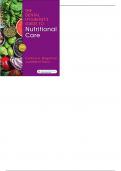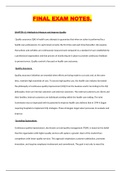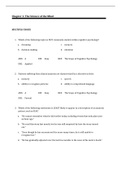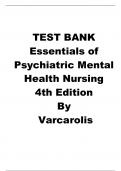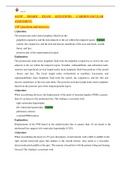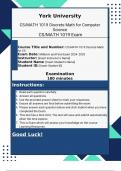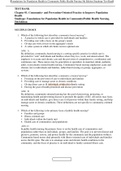Exam (elaborations)
The Dental Hygienists Guide to Nutritional Care 5th Edition by Cynthia A. Stegeman - Test Bank
- Course
- Institution
Chapter 03: The Alimentary Canal: Digestion and Absorption Stegeman: The Dental Hygienist’s Guide to Nutritional Care, 5th Edition MULTIPLE CHOICE 1. Each is a portion of the alimentary canal, except one. Which is the exception? a. Oral cavity b. Pharynx c. Larynx d. Esophagus e....
[Show more]
